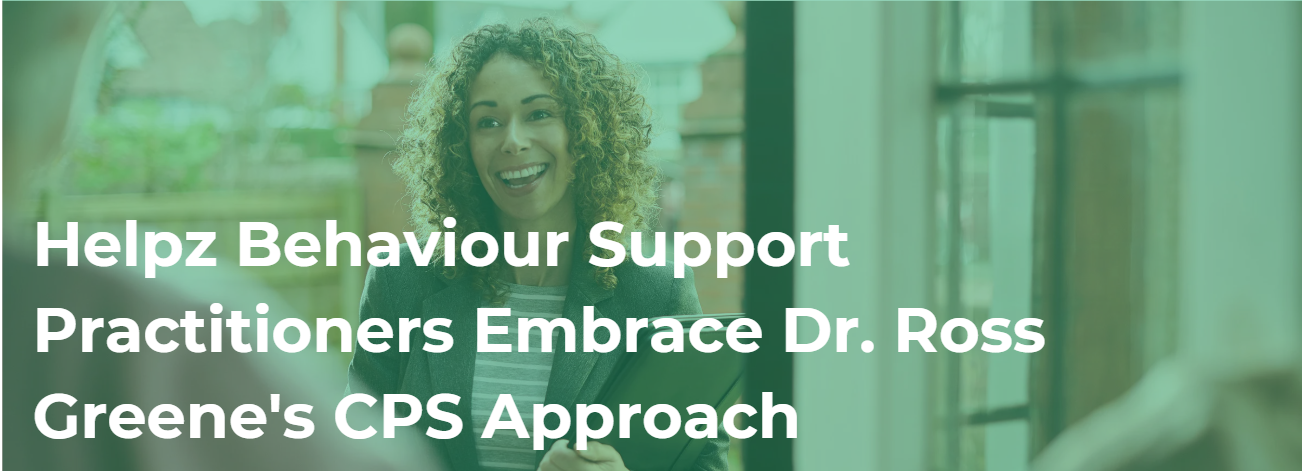Making Wellness Better Together: How Behaviour Support and Teamwork Lead to Healthier Lives

Achieving true wellness is a journey that involves caring for our minds, bodies, and emotions in a connected way. For this, we need more than one type of care; we need a team that brings together different kinds of support. This idea is called transdisciplinary care, and it's like a group of friends where everyone has a unique skill, and they work together to help someone feel better. It's especially helpful for people living with various physical, mental, and emotional conditions, as it looks at the whole person and not just one part of them.
In transdisciplinary care, different support areas like behaviour support, speech therapy, and others don't work alone. Instead, they share their skills and knowledge to create a full care plan that covers all bases. This way, they can meet all the different needs a person might have, helping them live a fuller, more comfortable life. This approach is becoming more and more important around the world, and it's helping to change the way we think about health and wellness, and improving health outcomes for participants.
In this light, we recognise the importance of understanding and improving how we behave and react to things around us, known as behaviour support. This type of support plays a key role in our overall health, lets now explore how it fits into the bigger care picture and collaborates with other support areas to contribute to a fuller, more balanced life for participants.
Understanding Behaviour Support Therapy
At its core, behaviour support therapy involves comprehending and adjusting behavioural responses, focusing on a proactive and preventive approach. Behaviour support is an essential pillar within mental health care, as demonstrated by a study in BMC Psychiatry, which compared the effectiveness of non-directive counselling with cognitive behaviour therapy in managing anxiety and depression. While the outcomes between the therapies showed minimal variance, the research underscored the integral nature of behaviour-centric support in each approach.
Further emphasising the need for robust behaviour support strategies, data from the Australian Bureau of Statistics reveal a prevalence of mental health issues, with 42.9% of Australians aged 16–85 years experiencing mental disorders. This landscape has been paralleled by a significant uptick in the pursuit of digital mental health resources, with 860,000 Australians seeking online mental health services between late 2020 and mid-2021, reflecting a modern evolution in health-seeking behaviours.
Integrating Behaviour Support with Allied Health Disciplines
When behaviour support strategies are interwoven with allied health services, a holistic framework of care is born. This approach goes beyond the traditional confines of therapy, especially for NDIS participants whose needs can be both complex and diverse.
Speech Therapy: Participants struggling with communication barriers can greatly benefit when behaviour support strategies are integrated into speech therapy sessions. These strategies help shape positive behavioural environments, easing the anxiety or resistance often accompanying communication challenges, and enhancing the efficacy of speech therapy interventions.
Occupational Therapy: Behaviour support becomes valuable in occupational therapy by encouraging participants' engagement in essential daily tasks, reducing disruptive behaviours and fostering a sense of achievement and autonomy.
Dietetics: Individuals, especially those with specific health conditions or disabilities, may resist necessary dietary changes or exhibit selective eating behaviours. Here, behaviour support strategies are pivotal in establishing and reinforcing healthy eating patterns, ensuring participants receive the nutrition necessary for their overall well-being.
Social Work: Social workers advocate for NDIS participants' social and emotional needs, facilitating their navigation through personal and societal challenges. When fused with behaviour support, social work can more effectively help individuals develop constructive social interaction skills, essential for community integration and personal empowerment.
Physiotherapy: Active participation and following prescribed exercises are crucial for successful physiotherapy. Behaviour support complements this by motivating consistent engagement, particularly for individuals who may struggle with motivational issues or behavioural barriers impeding their recovery or management process.
Counselling and Psychology: Counselling and psychology address the intricate emotional and psychological characteristics of participants' well-being. Behaviour support enhances these services by ensuring individuals adopt positive coping mechanisms, contributing to more stable mental health and a higher quality of life.
helpz: Championing a Transdisciplinary Approach for Better Outcomes
At helpz, we're set up to allow our team to work in this collaborative approach, meaning we share ideas and advice, enabling a fluid exchange of insights and strategies that cater to the holistic needs of each of our participants, making sure we provide the best support tailored to each person's needs.
We also believe in letting everyone have a say in how we can help them. By allowing our team to collaborate and suggest ways to improve, we make sure our support is respectful and understanding of each person’s situation. By working in this way at helpz it means we can all be committed to making sure people feel involved and valued in their care journey.
Crafting a Future of Comprehensive Care
As we draw understanding and insights from global research and real-world applications, the integration of behaviour support and allied health disciplines emerges as a transformative approach to holistic care. For NDIS participants, this integrated model doesn’t just signify enhanced therapeutic outcomes; it represents an empowering pathway leading to a more enriched life experience.
As we move forward, this strategy fosters an environment where individuals with disabilities feel comprehensively supported, enabling them to navigate life's challenges with dignity and confidence. It marks a future where health care narratives are not about isolated interventions but about integrated care that celebrates and nurtures the human spirit in all its complexity.
Thinking about coming a behaviour support practitioner? explore our online course here.
News & Insights
Check Our Latest Resources







